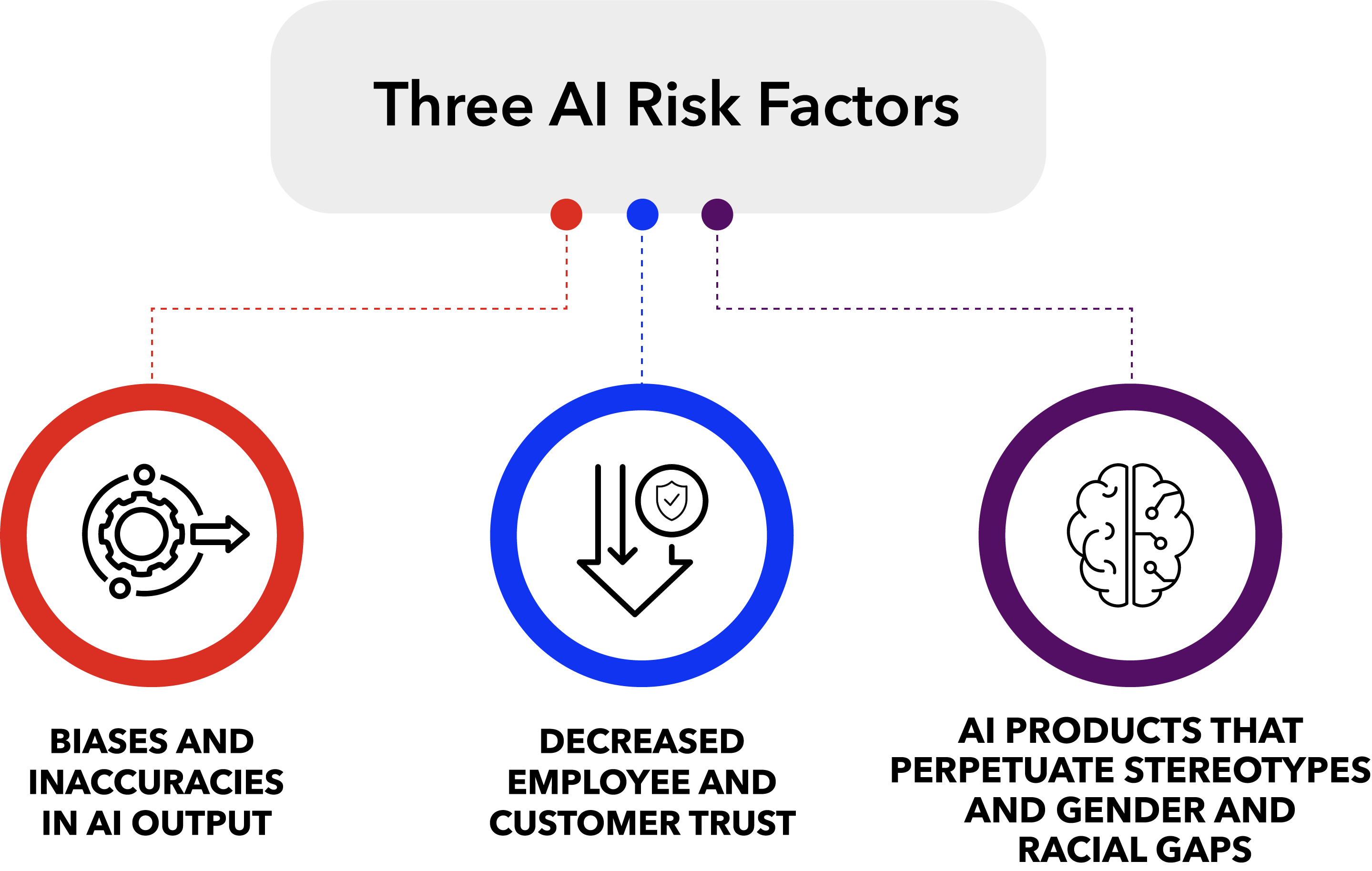Responsible artificial intelligence for inclusive workplaces

Executive summary
Businesses around the world are using artificial intelligence (AI) at increasing rates on a wide range of applications, such as analyzing supply chains to anticipate disruptions;1 creating hyper-personalized, data-driven content tailored to specific clients and potential customers;2 identifying efficiency bottlenecks and streamlining workflows;<3 analyzing emotions of employees, candidates, and customers;4 and so much more.
While many business leaders are dazzled by the huge potential and sheer wonder of AI, they are also grappling with the risk it poses to both their own organizations and society at large. These leaders are hurrying to understand how to use AI responsibly and ethically to mitigate potential risks stemming from a variety of issues, including emerging regulatory and legislative actions, skills gaps, data security, and intellectual property issues.
But they must also pay attention to another major area of risk: failure to assess AI use with a diversity, equity, and inclusion (DEI) lens. Developing AI products and tools without asking the right DEI questions can result in:
- Biases and inaccuracies in AI output.
- Decreased employee and customer trust.
- AI products that perpetuate stereotypes and gender and racial gaps

Some organizations are already deeply immersed in discussions about ethical and responsible AI use, especially at the senior level. But for a technology as paradigm-shifting as AI, a broad spectrum of employees across many functional areas needs to be included in these crucial conversations and upskilled in ethical and responsible AI use with a DEI lens.
This explainer is a guide for anyone committed to ensuring that evolving AI business strategies are not only ethical and responsible but also incorporate DEI principles. It provides: